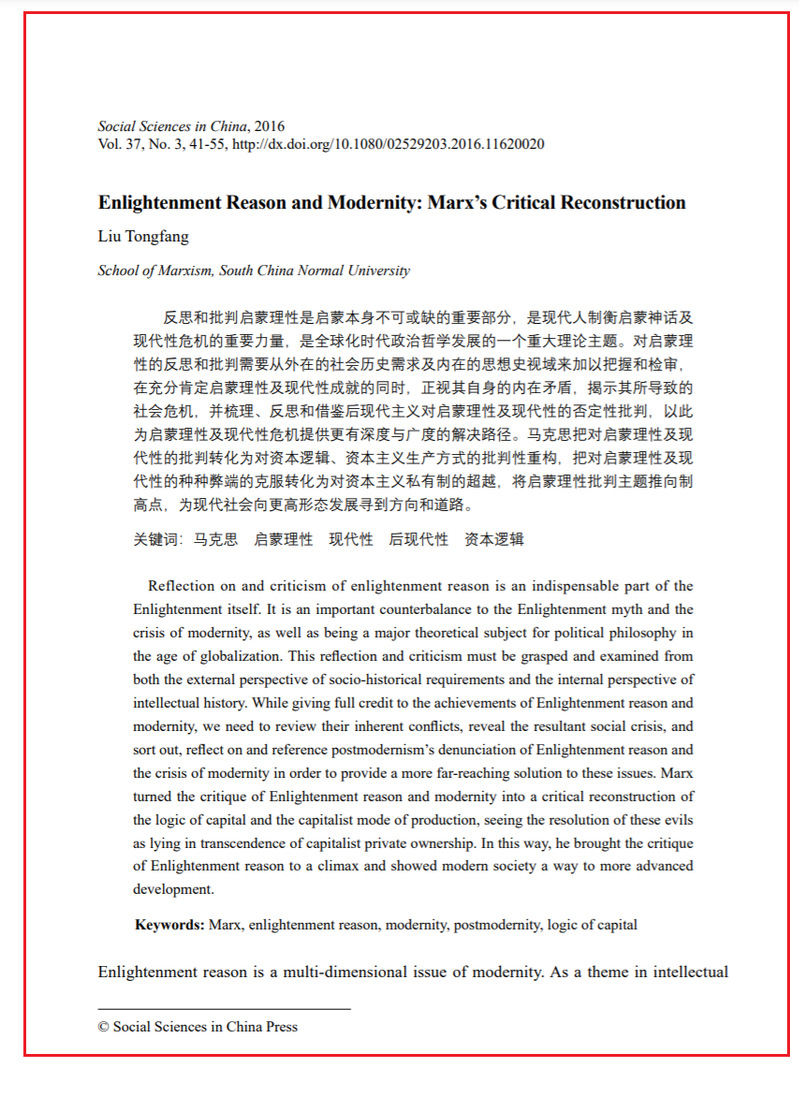Editor: 杨赟悦 Time: 2021-03-04 Number of visits :330
This article was published in the English edition of Chinese Social Sciences, by Professor Liu Tongfang, and the full text was translated by the editors of the English edition of Chinese Social Sciences.
Abstract:Reflection on and criticism of enlightenment reason is an indispensable part of the Enlightenment itself. It is an important counterbalance to the Enlightenment myth and the crisis of modernity, as well as being a major theoretical subject for political philosophy in the age of globalization. This reflection and criticism must be grasped and examined from both the external perspective of socio-historical requirements and the internal perspective of intellectual history. While giving full credit to the achievements of Enlightenment reason and modernity, we need to review their inherent conflicts, reveal the resultant social crisis, and sort out, reflect on and reference postmodernism’s denunciation of Enlightenment reason and the crisis of modernity in order to provide a more far-reaching solution to these issues. Marx turned the critique of Enlightenment reason and modernity into a critical reconstruction of the logic of capital and the capitalist mode of production, seeing the resolution of these evils as lying in transcendence of capitalist private ownership. In this way, he brought the critique of Enlightenment reason to a climax and showed modern society a way to more advanced development.

